clergy abuse scandal
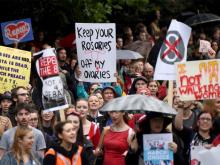
Ireland metaphorically barred the door on the church’s influence on public policy when citizens voted overwhelmingly for the legalization of gay marriage in 2015, making it the first country in the world to do so by national referendum. Now some devout Catholics fear that door may be locked after a Citizens’ Assembly — a deliberative body of people randomly selected from across the country — recently recommended liberal changes to Ireland’s abortion laws.
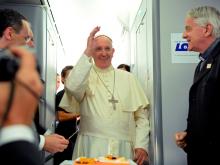
Pope Francis says he will not address sexual abuse allegations against the Vatican’s finance minister, Cardinal George Pell, until Australian judicial authorities complete their investigation.
In a press conference on the papal flight returning from World Youth Day in Poland late July 31, the pontiff said the allegations against Pell “are in the hands of the justice system” and the cardinal should not be judged “before the justice system judges.”
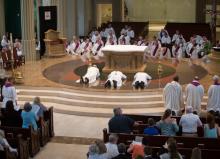
A single chime rang out after each abuse victim’s statement was read over the speakers at the Cathedral of the Immaculate Conception in downtown Kansas City, a solemn echo to enduring pain.
It was a simple, symbolic gesture but one that had an almost inexpressible resonance for those who had been abused, and for many Catholics in a diocese so identified with clergy abuse that its last bishop was forced to resign.
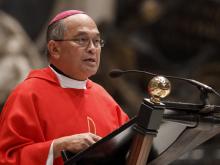
Mounting accusations of sexual abuse against the archbishop of Guam have prompted Pope Francis to name a Vatican official to oversee the Catholic Church on the Pacific island territory while the charges are investigated.
The decision announced June 6 to force Archbishop Anthony Sablan Apuron, who has led the Agana Archdiocese for 30 years, to yield his authority, at least temporarily, is the latest sign that Francis is taking tougher steps to tackle the sexual abuse crisis.

After 11 years of defiantly occupying a parish building that the Archdiocese of Boston ordered closed in 2004, the people of St. Frances X. Cabrini Church in Scituate, Mass., are finally handing over the keys. The tenacious protesters, angry their parish would be closed in the wake of the clergy sexual abuse crisis, lost their final Hail Mary bid to reopen the church May 16 when the U.S. Supreme Court declined to hear their case.
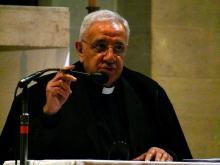
For years, seminaries and monasteries around France sent students and novices to Monsignor Tony Anatrella, a prominent French priest and therapist who has written disparagingly of gays, if their superiors decided the young men were struggling with homosexuality.
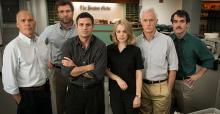
It is just a single line of dialogue from Spotlight, up for Best Picture and five other Academy Awards Feb. 28, but it could be a movie in itself. It’s an allusion to an entire unknown chapter in the history of the Catholic Church sex abuse scandals: the role of National Catholic Reporter in first uncovering the clerical conspiracy to shield abusing priests.
“Have you read Jason Berry’s book? He wrote about the Gauthe case,” an abuse survivor asks the team of investigative reporters featured in the film.

Catholic clergy have a “moral and ethical responsibility” to report sexual abuse, the cardinal tasked with reforming the Vatican’s approach to sexual crimes said after criticism of the Holy See. Boston Cardinal Sean O’Malley sought to reaffirm the church’s position on reporting abuse in his role as head of the Pontifical Commission for the Protection of Minors, which Pope Francis set up in 2014.

The Vatican commission on clerical sexual abuse has wrapped up a turbulent week-long meeting during which one of two victims on the panel was effectively ousted and Chilean Catholics upset that Pope Francis has not sacked a controversial bishop delivered protest letters. But a statement released on Feb. 8 at the end of the biannual meeting of the Pontifical Commission for the Protection of Minors made no mention of its decision on Feb. 6 that Peter Saunders, a clerical abuse victim from Britain, would take a “leave of absence.”
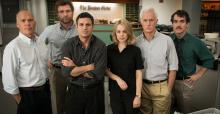
Early in the film Spotlight, about the Boston Globe investigative reporting team that exposed the decades-long cover-up of sex abuse by Catholic church leaders, a Globe reporter is shown at Mass with her grandmother. The priest, launching his homily, says, “Knowledge is one thing. Faith is another.”
In a simplistic film, this binary statement might set the tone for a black-and-white portrait of journalists as pure heroes and people of faith as solely hypocrites and worse. But Spotlight works with characters not caricatures; not one-dimensional heroes and villains, but real people who sometimes choose expediency and sometimes courage. No one is shown to be flawless, not even the reporters and editors who do great good in bringing to light systemic crimes.
But the movie does illustrate quite clearly one tension between knowledge and faith: The guardians of institutions, including churches, can fear knowledge to the point of pathology.

Pope Francis on Monday held his first meeting with victims of clergy sex abuse, begging for forgiveness and promising to hold “accountable” the bishops who were complicit in covering up for predatory priests.
“Before God and his people I express my sorrow for the sins and grave crimes of clerical sexual abuse committed against you. And I humbly ask forgiveness,” the pope said, according to a Vatican transcript of his morning homily.
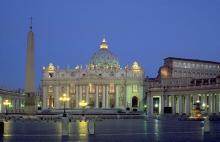
The Vatican could face a wave of new sexual abuse claims dating back decades if a United Nations inquiry finds that the Roman Catholic Church has violated an international treaty against torture and inhuman treatment.
“For too long, sexual violence and acts of rape by the Catholic Church have been minimized,” said Katherine Gallagher, senior staff attorney at the New York-based CCR, after the U.N. panel that enforces the torture convention held hearings in Geneva.
VATICAN CITY — Ten years after the clergy sexual abuse scandal erupted in the United States, Catholic bishops from all over the world will meet next week at a Vatican summit aimed at preventing abuse and protecting children.
The conference, "Towards Healing and Renewal," will be held on Feb. 6-9 and is organized by the Jesuit-run Gregorian University in Rome.
The Vatican's top spokesman, the Rev. Federico Lombardi, told reporters on Friday (Feb. 3) that the summit enjoys the "full support and participation" of the Vatican's highest offices, but Pope Benedict XVI is not expected to attend.
Monsignor Charles Scicluna, the Vatican's chief abuse prosecutor, said the protection of children must become "a permanent principle and concern" in every decision of the church.
"There cannot be a distinction between the good of the church and the protection of youth," he said Friday.